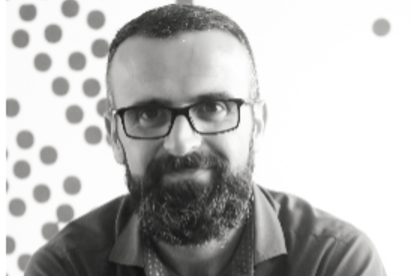The COVID-19 pandemic has shifted priorities and resources. It has created difficulties in the work of civil society organizations that act on behalf of the most vulnerable groups and the public interest. An example is the restrictions to the right to information and limitation/violation of open government laws, viewing them either as unimportant, or worse, to hide their deficiencies. How are civil society organizations trying to maintain their role of helping those affected for the purpose of increasing the participation in decision-making, and seeking accountability from governments?
*******
The COVID-19 pandemic has affected all layers of societies. The response to the crisis varies, depending on government measures to mitigate the impact. The crisis has also hindered the ability of civil society organizations to respond—either due to constraints on movement or other restrictions imposed by governments.
In this blog post, we share our experience from Kosovo on how an informal consultative Forum with civil society organizations (CSOs) on local governance issues contributed to citizens’ participation and accountability. We use the work of the Decentralisation and Municipal Support (DEMOS) project of the Swiss Agency for Development and Cooperation (SDC) implemented by Helvetas.
This is how it started…
Citizens increasingly feel that they are not always included in the decision-making processes and are not well informed about the Government’s work. To fill in such a gap, the Ministry of Local Government (MLG) in Kosovo has established an informal consultative Forum with civil society organizations (CSOs) on local governance issues. The need for creating a similar forum has been raised by CSOs some time ago.
The main purpose of the Forum is to serve as a communication and cooperation mechanism between the MLG and CSOs. It aims at advancing local government in Kosovo and enables the exchange of information and good practices— from cooperation in the implementation of activities of mutual interest to consultation in relevant decision-making processes and other activities related to local government. The MLG and CSOs jointly decide the activities of the Forum. Proposals can come either from the MLG or the CSOs. The Forum often raises issues that directly concern citizens.
Citizens’ participation in decision-making of the Government has been low in Kosovo. From the annual European Commission country reports on Kosovo to the comprehensive study on local governance conducted by MLG and analyses by the DEMOS project have shown this low-level participation of citizens. The Forum has been established to increase the participation of citizens in the democratic debate and the design of public policy through CSOs.
‘The Forum aims to discuss and coordinate objectives between the institutional spectrum and civil society organizations,’ says Bekim Salihu from GAP Institute. The aim is ‘to strengthen and advance good governance practices specifically and the local government system generally’.
The MLG pays attention to the reports and policy papers of the CSOs by reviewing, studying, and discussing ways on how to address the findings and recommendations the Forum outlines. These findings and recommendations are discussed in the Forum, and initiatives are undertaken to pursue with relevant stakeholders.
The most active CSOs are represented in the Forum, but the participation of other CSOs is also encouraged. This is because CSOs have direct experience from the field about the needs of citizens, bringing in critical aspects of policy development and implementation.
Arta Sejdiu, from Democracy Plus, sees the Forum as a ‘supporting mechanism for advocacy in the implementation of gender policies so that civil society is not left alone in advocating for gender equality’.
The work of the Forum is open and the MLG publishes all relevant documents on its website. Furthermore, a website (link) is being developed where citizens will also have the chance to communicate with the Forum.
The role of DEMOS
The owner of the forum is the MLG, as it has formally initiated its establishment. Yet, CSOs represented in the Forum and the MLG are equal partners. DEMOS has contributed from the beginning by providing ideas on the structure of the Forum and offering expertise and technical support for the effective functioning of the Forum.
DEMOS has been facilitating the drafting of the Declaration to ensure the commitment of the members for their joint work and contribution to the Forum. Additionally, DEMOS has contributed to the drafting of the action plan for the work of the Forum, as well as a concept document regarding the visibility of the Forum.
‘Walking the talk’: does it make a difference?
So far, the Forum has held several meetings to discuss various topics, such as local finance, the fourth grant for the municipalities that the previous government promoted, the draft regulation on the performance system of the municipalities, and other important issues. The COVID-19 pandemic did not stop the work of the Forum. For example, its meetings are held through online platforms.
Rather the pandemic has offered new opportunities to the role of the Forum. On the one hand, the MLG is focused on coordinating and supervising the work of municipalities in coordinating the responses to the pandemic and in the implementation of central level policies. On the other hand, CSOs are focused on the pandemic, specifically its impact on the work of municipalities, as well as on the provision of services to citizens. CSOs have made various policy analysis regarding the impact of pandemics on municipalities, such as the source of revenues, management of responses to the pandemic, and the challenges they face.
‘As civil society, we will be the liaison between citizens and institutions in implementing policies related to pandemic management,’ explains Sadri Rrmoku from the Kosovo Institute for Local Government. ‘We will be especially a critical voice in addressing the demands of citizens in this emergency,’ adds Sadri.
The Forum has now received attention from other institutions, such as the Ministry of Agriculture and Rural Development, which is interested in appointing a member of the Forum to participate in the commissions of the Kosovo Forest Agency concerning the needs of the local governments in allocation of forest land for private users. The MLG sees the Forum as an important and potential instrument that can contribute to the policies of other intuitions and agencies.
… from here to where?
Kosovo’s new government has drafted a work program and a legislative plan that includes many documents that will have an impact on the functions of local government in the country. The relevance of all these documents is tested by how the voices of citizens are heard. CSOs in the Forum will have the opportunity to review and propose recommendations for these policies that affect the lives of citizens.
With the limited direct participation of citizens in government consultation processes, CSOs are expected to be much more proactive, especially in the face of the uncertainty caused by the pandemic. CSOs remain a bridge between the citizens and public institutions.
The MLG is open to new ideas and cooperation with the CSOs. In confirmation of the importance of the forum, Shkëlqim Jakupi, the Director for European Integration and Policy Coordination in the MLG, states that ‘the forum has significantly increased the cooperation and has formalized the way of its organization and functioning.’ Concretely, the MLG sees the potential to ‘formalize the Forum’s involvement of civil society in the drafting and monitoring of all policies of the MLG and other institutions that impact the local government,’ adds Shkëlqim.
Considering the visibility that the Forum started to have and the commitment of MLG and CSOs, the institutionalization of this informal Forum has a high prospect.
Related readings




